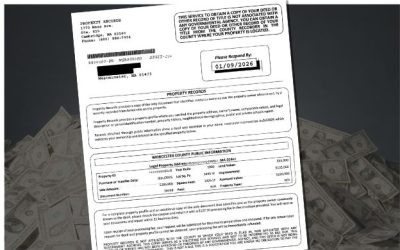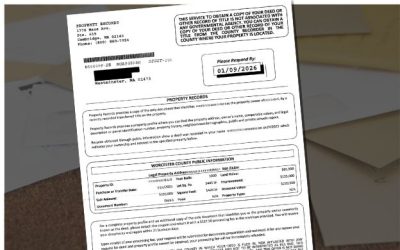
Dec 11, 2025 | Consumer Tips, Home Buyer Tips, Home Seller Tips, Home Tips, Homebuyer Tips, Interesting Stuff
If there’s one thing we hear often from agents and loan officers, it’s this: “I would like more warm referrals — not cold leads that waste my time.”
Here are three easy wins you can put into play immediately. These aren’t theory. They work because they make people think of you first, without you chasing anyone.
1. Send a “5-Minute Holiday Check-In” to Past Clients
Don’t overthink it. Keep it simple:
“Hey, just wanted to check in before the holidays. Anything going on with your home or your plans for 2026 that you want to bounce off me?”
This message hits the sweet spot — it’s warm, personal, and not salesy.
Every year, people start thinking about tax implications, life changes, refinancing, upsizing, downsizing, and renovation goals right around the holidays.
You’re giving them permission to talk to you again.
2. Share One Useful Local Market Snapshot (No Fear Tactics)
Clients don’t want national stats. They want to know what’s happening within 20 miles of their front door.
You can send something like:
“Quick update: Inventory is shifting in our area, and buyers/sellers are getting opportunities we didn’t have six months ago. Want me to send you the 60-second version for your neighborhood?”
This positions you as the guide — not the alarm bell.
3. Ask Local Professionals for a “Holiday Bump” Exchange
Reach out to:
- insurance reps
- accountants
- estate attorneys
- contractors
- property managers
Say:
“Holiday rush is starting. Want to exchange a couple warm intros for clients who could use each other’s services before the end of the year?”
You’d be surprised how many pros love this, because they’re also trying to finish the year strong.
Providing title, escrow, closing and settlement services to clients throughout Massachusetts and New Hampshire

Aug 21, 2025 | Home Buyer Tips, Home Buying Tips, Home Care Tips, Home Closings, Home Tips, Homeowner Tips, Housing Analysis, Mortgage, Uncategorized
They may represent just 3% of all buyers, but Gen Z is determined to change the game. Armed with FHA loans, side hustles, and family support, these resourceful buyers are targeting affordable regions — not Boston, but places like Grand Rapids and Salt Lake City. In New Hampshire and Massachusetts, they’re hunting for opportunity while carrying average personal debt over $94,000. Here’s how this rising generation is entering the market, and what lenders should know to meet them where they are.
Gen Z came of age during economic upheaval — the 2008 housing crash was their childhood backdrop, and the COVID-19 pandemic shaped their early adulthood. They’ve watched older millennials struggle with student debt and delayed homeownership. That history has made them cautious, debt-averse, and surprisingly strategic in their approach to buying.
Unlike previous generations, Gen Z doesn’t expect homeownership to happen overnight. They’re willing to rent longer, work side hustles, and lean on family support if it helps them break into the market when the timing is right.
Affordability is the single biggest obstacle standing in their way.
- Average debt load: over $94,000 per young adult.
- Median household income growth: stagnant compared to housing costs.
- Entry-level homes: scarce, especially in high-cost regions like Greater Boston.
In short, the math doesn’t always work. But that hasn’t stopped Gen Z from getting creative.
How They’re Making It Work
FHA and Low Down Payment Loans
With cash savings limited, FHA loans and other low down payment programs are Gen Z’s go-to tool. These options allow them to enter the market sooner, even if it means paying mortgage insurance.
Side Hustles and Multiple Income Streams
From freelance work to online businesses, Gen Z isn’t afraid to diversify income to qualify for a mortgage. Lenders who recognize alternative income streams — and can explain how to document them properly — gain a clear edge.
Family Support and Gifts of Equity
Parents and grandparents are playing a larger role, either through co-signing, down payment assistance, or equity transfers. These transactions often involve extra legal steps, which is where experienced closing attorneys keep everything compliant.
Targeting Affordable Regions
Gen Z is skipping the Boston condo market and looking north and west — from New Hampshire’s suburbs to smaller Massachusetts cities like Worcester. They want affordability, community, and remote-work flexibility more than urban prestige.
For lenders, winning Gen Z business means more than just offering a loan — it’s about meeting them on their terms.
- Be Digital-First: Mobile-friendly applications, virtual closings, and real-time status updates are table stakes.
- Expand Credit Access: Use VantageScore 4.0 and consider rent or utility payment histories for applicants with thin credit files.
- Educate and Simplify: Break down loan terms in plain English, offer first-time buyer workshops, and demystify the process.
- Focus on Entry Markets: Market lending products in regions where Gen Z is actually shopping, not just where the big headlines are.
Quick Lender Recommendations
- Highlight FHA and low down payment products
- Accept and explain alternative income sources
- Emphasize digital lending tools (portals, e-signatures, mobile updates)
- Promote credit-building strategies tied to VantageScore 4.0
- Offer first-time buyer education as part of your brand
Gen Z may be small in numbers today, but their determination is reshaping tomorrow’s market. They are resourceful, cautious, and fiercely committed to finding a way into homeownership — even when the odds seem stacked against them. For lenders, attorneys, and real estate professionals in Massachusetts and New Hampshire, understanding this generation isn’t optional. It’s the key to staying relevant.
At The Law Office of David R. Rocheford, Jr., P.C., we work alongside buyers, sellers, and lenders to ensure every deal — whether fueled by an FHA loan, family support, or creative structuring — is handled smoothly and compliantly.
Want to better understand the next wave of homebuyers? Contact us today
Providing title, escrow, closing and settlement services to clients throughout Massachusetts and New Hampshire
“I would highly recommend David as a closing attorney. I have known David and have been using his office for many years. David’s professionalism when dealing with me, my closing department and most especially my clients has been always exemplary.”
SENIOR LOAN OFFICER, SHAMROCK FINANCIAL SERVICES
“The Law Office of Attorney David R. Rocheford, Jr. is by far the most exceptional real estate law office that I have had the pleasure of working with. The professionalism is by far second to none.”
SENIOR LOAN OFFICER, SALEM FIVE MORTGAGE SERVICES
“Attorney David Rocheford has provided settlement and title services for me and Greenpark Mortgage several years. He has assisted all of my clients, including my family and friends with mortgage closings. Always providing excellent service. Reliable and trustworthy!”

Aug 21, 2025 | Buying Real Estate, Consumer Tips, Credit Scoring, Home Building Tips, Home Buyer Tips, Home Buying Tips, Home Closings, Home Mortgage, Home Mortgage Tips, Home Seller Tips, Home Selling Tips, Home Tips, Home Values, Homebuyer Tips, Homeowner Tips
Once upon a time, the path to homeownership started in your late 20s. Today, the median age of a first-time buyer has climbed to 38 — the highest in U.S. history. In Massachusetts and New Hampshire, where prices remain high and incomes haven’t kept pace, first-time buyers make up only 24% of the market. This generational shift isn’t just a national trend — it’s reshaping local markets, too. Let’s explore why fewer young buyers are entering the game and what it means for buyers, sellers, and lenders alike.
The Shrinking First-Time Buyer Pool
In 2010, first-time buyers represented half the housing market. By 2024, that number dropped to less than a quarter. It’s not because younger generations don’t want to buy — surveys show they do — but the financial barriers are higher than ever.
For Massachusetts and New Hampshire buyers, the challenge is particularly acute. Both states rank among the nation’s most expensive housing markets, with limited inventory and bidding wars still common in desirable areas. That leaves many would-be buyers sidelined, even when mortgage rates dip slightly.
Why It’s Harder Than Ever
The income needed to buy a median-priced home has soared to over $126,000 a year, nearly 60% higher than in 2021. Meanwhile, household incomes in the region have barely budged. That mismatch has locked many younger buyers out of the market.
Millennials and Gen Z carry heavy financial baggage, from student loans to credit card balances. With Gen Z’s average personal debt topping $94,000, saving for a down payment feels more like a marathon than a sprint.
Entry-level homes — once the natural first step into ownership — are scarce. Many builders in New England focus on higher-margin luxury units, while affordable starter homes are either aging or quickly snapped up.
Younger generations are delaying marriage, children, and long-term settling, which historically drove first-home purchases. Add in higher rent burdens and inflation, and the dream of ownership is being pushed later into life.
What This Means for Sellers
If you’re selling in Massachusetts or New Hampshire, this trend could mean fewer young families competing for your property. That may soften demand in some price brackets, especially for entry-level homes. On the flip side, it also means that when younger buyers do show up, they’re highly motivated — and often well-prepared with family support, FHA financing, or cash gifts.
What This Means for Lenders
Lenders can’t assume yesterday’s products will work for today’s market. Winning over first-time buyers requires:
- FHA and low down payment options to lower the entry barrier
- Alternative credit scoring (including rental and utility history) to qualify more applicants
- Digital-first lending to meet younger buyers where they are
- Educational resources to guide cautious, debt-burdened buyers through the process
The lenders who succeed won’t just hand out mortgages — they’ll provide tools, trust, and guidance.
What This Means for Buyers
If you’re a first-time buyer in MA or NH, you’re not alone in feeling like the deck is stacked against you. But there are pathways forward:
- Explore FHA or MassHousing programs that reduce down payment hurdles
- Work with a closing attorney early to understand costs and risks
- Consider expanding your search beyond major metros into more affordable towns or suburbs
The shrinking pool of first-time buyers isn’t just a statistic — it’s a reality that shapes how homes are bought, sold, and financed in Massachusetts and New Hampshire. For buyers, it means persistence and planning. For sellers, it means understanding who your likely buyers really are. And for lenders, it means rethinking old playbooks to stay relevant.
At The Law Office of David R. Rocheford, Jr., P.C., we help buyers, sellers, and lenders adapt to today’s challenges and keep closings on track.
Ready to navigate the new landscape? Contact us today
Providing title, escrow, closing and settlement services to clients throughout Massachusetts and New Hampshire
“I would highly recommend David as a closing attorney. I have known David and have been using his office for many years. David’s professionalism when dealing with me, my closing department and most especially my clients has been always exemplary.”
SENIOR LOAN OFFICER, SHAMROCK FINANCIAL SERVICES
“The Law Office of Attorney David R. Rocheford, Jr. is by far the most exceptional real estate law office that I have had the pleasure of working with. The professionalism is by far second to none.”
SENIOR LOAN OFFICER, SALEM FIVE MORTGAGE SERVICES
“Attorney David Rocheford has provided settlement and title services for me and Greenpark Mortgage several years. He has assisted all of my clients, including my family and friends with mortgage closings. Always providing excellent service. Reliable and trustworthy!”

Jul 17, 2025 | Home Buyer Tips, Home Mortgage, Home Seller Tips, Home Tips, Mortgage Lenders, News, Real Estate, Real Estate Tips
When you’re buying a home, there’s no shortage of decisions to make—fixed or adjustable rate? Move-in ready or fixer-upper? But here’s one question you might not have considered: Should you use the attorney your lender recommends for your closing?
In Massachusetts and New Hampshire, the answer isn’t as straightforward as you might think. Let’s break it down so you can make the choice that’s right for you.
Who Does the Lender’s Attorney Represent?
In many cases, the attorney your lender suggests is hired to prepare the loan documents and ensure the lender’s interests are protected. That’s right: their job is to watch out for the bank—not you.
While they may seem helpful and experienced, their primary duty is making sure the lender gets paid and the mortgage is legally enforceable.
Why You Need Independent Counsel
As the buyer, you’re making a huge investment. Wouldn’t you want someone looking out for your interests? Here’s what an independent closing attorney like The Law Office of David R. Rocheford, Jr., P.C. brings to the table:
- Protecting Your Rights: We review contracts, disclosures, and settlement statements for errors or unfavorable terms that could cost you later.
- Preventing Surprises: From title issues to zoning concerns, we catch potential problems before they derail your closing.
- Explaining the Fine Print: We translate legal jargon into plain English so you know exactly what you’re signing.
- Advocating for You: If disputes arise, we’re in your corner—not the lender’s.
What the Law Says in MA and NH
- In Massachusetts, buyers are required to have their own attorney for certain aspects of the closing process.
- In New Hampshire, it’s not legally required, but strongly recommended—especially for first-time buyers or complex transactions.
Your Advocate at the Closing Table
At The Law Office of David R. Rocheford, Jr., P.C., we help buyers throughout Massachusetts and Southern New Hampshire close with confidence. Whether you’re buying your first home or your forever home, our team ensures your interests come first—every step of the way.
Have questions about hiring your own closing attorney? Call us today and let’s talk.
Providing title, escrow, closing and settlement services to clients throughout Massachusetts and New Hampshire
“I would highly recommend David as a closing attorney. I have known David and have been using his office for many years. David’s professionalism when dealing with me, my closing department and most especially my clients has been always exemplary.”
SENIOR LOAN OFFICER, SHAMROCK FINANCIAL SERVICES
“The Law Office of Attorney David R. Rocheford, Jr. is by far the most exceptional real estate law office that I have had the pleasure of working with. The professionalism is by far second to none.”
SENIOR LOAN OFFICER, SALEM FIVE MORTGAGE SERVICES
“Attorney David Rocheford has provided settlement and title services for me and Greenpark Mortgage several years. He has assisted all of my clients, including my family and friends with mortgage closings. Always providing excellent service. Reliable and trustworthy!”

Jun 19, 2025 | Around The Home, Around The Hoome, Artificial intelligence, Buying Real Estate, Chapter 7 Bankruptcy, Consumer Tips, Credit Scoring, Fair Housing, Federal Reserve, FHFA, Financial Crisis, Financial Fraud, Financial Reports, Foreclosure, Happy Thanksgiving, Holidays, Home Building Tips, Home Buyer Tips, Home Buying Tips, Home Care, Home Care Tips, Home Closings, Home Decorating, Home Financing Tips, Home Maintenance, Home Mortgage, Home Mortgage Tips, Home Seller Tips, Home Selling Tips, Home Tips, Home Values, Homebuyer Tips, Homeowner Tips, Housing Analysis, Housing Market, Interesting Stuff, Investment Properties, Legislation, Market Outlook, Mortagage Tips, Mortgage, Mortgage Guidelines, Mortgage Lenders, Mortgage Rates, Mortgage Tips, mortgage-rates-whats-ahead-september-17-2012, News, Organization Tips, Personal Finance, Probate Law, Rankings, Real Estate, Real Estate Agent Information, Real Estate Definitions, Real Estate Tips, Real Estate Trends, Realtors, Selling Real Estate, Selling Your Home, Short Sales, Statistics, Success, Taxes, The Economy, Title Insurance
Whether you’re buying with cash, investing from abroad, transferring property to a family member, or just trying to close without a headache, you’ll want to know what can trigger federal scrutiny — and how to stay off the radar.
From flagged wire transfers and shell companies to gift-of-equity sales and land near military zones, this isn’t your average title-and-keys situation.
It’s real estate with a side of national security, tax enforcement, and financial crime prevention.
Is Big Brother Watching Your Home Sale?
What Buyers and Sellers Should Know About Federal Oversight
You’re Not Paranoid — They Might Actually Be Watching
What you didn’t know on how federal agencies keep tabs on select real estate transactions.
Your Closing Packet Could Be a Federal File
How Your Paper Trail Might Raise Red Flags — And What You Can Do About It
What the FBI, IRS, and Homeland Security
Could See in Your Closing Docs
We’re unpacking what agencies might spot inside your deal’s fine print.
Caught in the Crosshairs? What Triggers Federal Interest in Your Home Sale
The Top Red Flags That Could Invite a Closer Look from Washington
Cash, LLCs, or Land Near a Base? You Might Just Be a Target
The warning signs that put your deal on the government’s radar — and how to stay clear.
Follow the Money: How the IRS Tracks Financial Crimes Through Real Estate
From Unreported Income to Shell Game Schemes
— What IRS-CI Is Looking For
Your Closing Could Be an Audit Trigger — Here’s How the IRS Sees It
Explore the patterns, documents, and loopholes that turn ordinary deals into criminal cases.
Providing title, escrow, closing and settlement services to clients throughout Massachusetts and New Hampshire
“As a realtor, the Rocheford team went above and beyond to make sure my client was not only protected from a legal standpoint but also operated in a timely manner to execute the sale of my client’s dream home.
Thank you for the great experience for myself and my client! Looking forward to our next deal together!”
Realtor®
“I don’t usually use attorneys that often. But if an attorney is needed, I couldn’t recommend this law office enough. I always pride myself on responding quickly to emails and calls, but I was in awe of how fast paralegal Robert Heckman would respond to us. We sold our house a couple months ago and then did a two-part land swap with neighbors and my folks, and both transactions were seamless, including coming in to sign paperwork.
In short, if you need a law office that is responsive and attentive to detail, definitely consider them!”
Leominster, MA
“Excellent, conscientious and professional.
The communication throughout our Real Estate transaction was better than expected. We thought the fee to be very reasonable considering the work accomplished on our behalf. The law office handled the entire closing without us having to be in attendance….as we requested. I have had experience with very competent lawyers and law firms as the result of my previous profession. I would place this law office right up there among the best in their real estate field of expertise and surprisingly at very reasonable and affordable rates/fees.”
Buzzards Bay, MA

Apr 16, 2025 | Consumer Tips, Fair Housing, Home Building Tips, Home Buyer Tips, Home Buying Tips, Home Maintenance, Home Seller Tips, Home Tips, Selling Real Estate, Selling Your Home
Won’t You Be My Neighbor? ADUs Now Permitted by Right in Massachusetts
Accessory Dwelling Units (ADUs) — small, independent living spaces on the same property as a main home — just got a big green light in Massachusetts. Thanks to the Healey-Driscoll Administration’s “Affordable Homes Act,” homeowners can now build or convert ADUs by right in many communities, making it easier to add housing and income flexibility.
If you’re a Realtor®, lender, or homeowner, here’s what you need to know to make sense of the new rules — and how they impact your property or transactions.
An ADU is a secondary living unit with its own sleeping, eating, cooking, and bathroom facilities. Think: a converted garage, a backyard cottage, or a finished basement with a separate entrance.
New Rules (Effective 2024):
The updated state law allows ADUs:
- As detached structures
- As additions to existing homes
- As conversions of garages, attics, or basements
To qualify, the ADU must be:
- Less than half the size of the primary residence or under 900 square feet
- Located in a single-family zoning district
- Code-compliant with a separate entrance
Key Protections for Homeowners
The new law, under MGL Chapter 40A, Section 3, overrides local zoning if the ADU meets minimum state standards:
- Cities cannot ban single ADUs
- Owner occupancy is not required
- ADUs can be rented for long-term housing
- Only one extra parking spot can be required
Local Nuances Still Apply:
Municipalities can:
- Ban short-term rentals (Airbnb, etc.)
- Restrict ADUs in flood zones or historic districts
- Require compliance with Title V septic and environmental regulations
Each of Massachusetts’ 351 towns has its own zoning quirks. While ADUs are protected, local rules may shape your options. Thinking of building one? Start by calling your local planning board.
At The Law Office of David R. Rocheford, Jr., P.C., we help clients navigate land use, permitting, and local regulations with confidence. Whether you’re buying, building, or advising, we’re here to help.
1234 Divi St. #1000, San Francisco, CA 94220
Copyright © 2026 Divi. All Rights Reserved.























